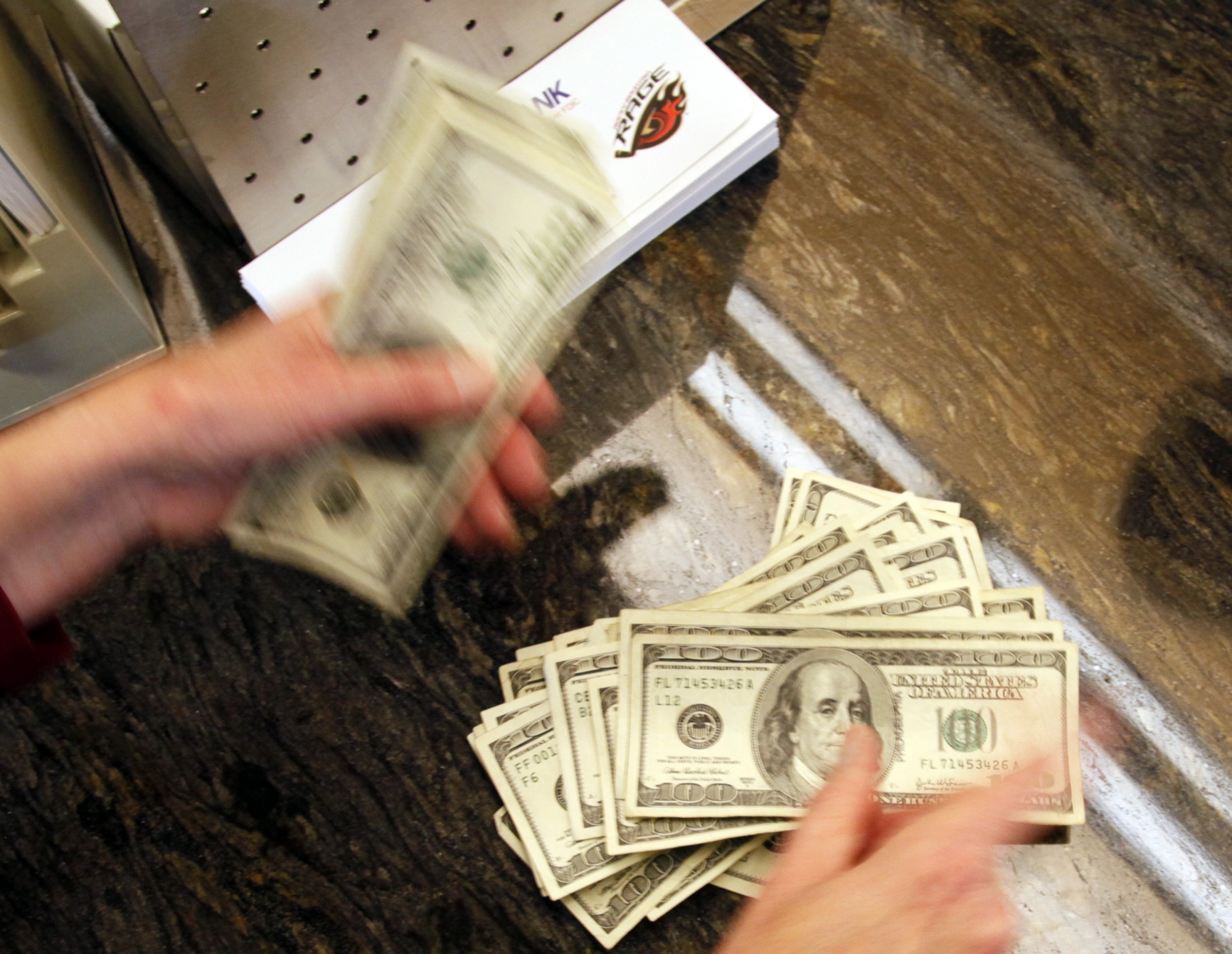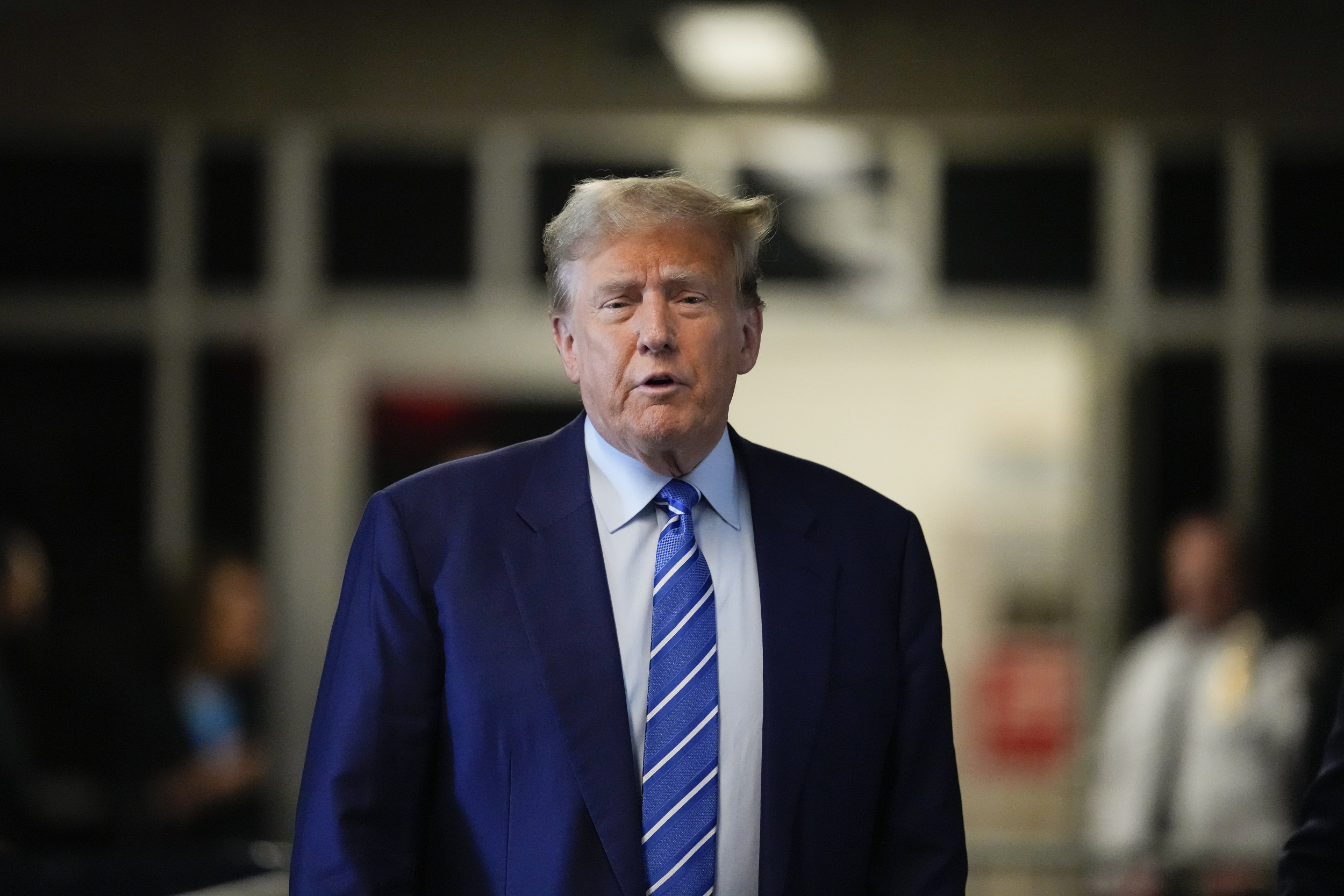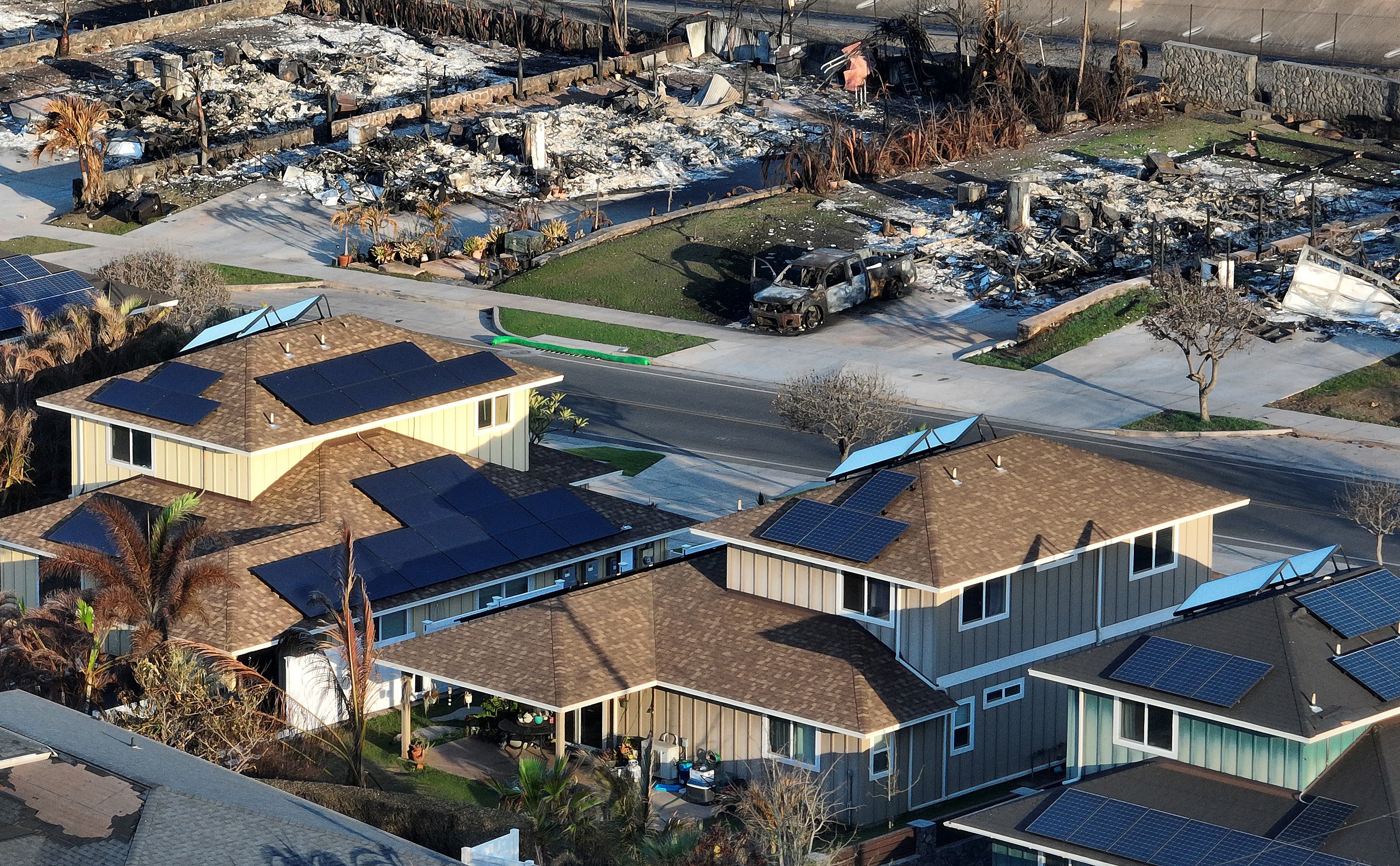
Quora Questions are part of a partnership between Newsweek and Quora, through which we'll be posting relevant and interesting answers from Quora contributors throughout the week. Read more about the partnership here.
Answer from Jonathan Brodsky, SVP of Chicken Soup for the Soul:
First, the universal basic income proposed—$1,000 to $2,000 a month—isn't that much in many places in the U.S. In the U.S, the poverty line for an individual is $11,800; for a family of four (the typical household measurement), it's $24,300. If you are looking at universal basic income versus the safety net already in place in the U.S, you can find estimates that say that the government already spends $61,194 per year per household in poverty (which includes Medicare). Or you can look strictly at cash transfers to households, which work out to about $212 billion total, divide that by the 46.7 million people below the poverty line in the U.S. according to the Census, and you see that straight cash transfers to people in the US (including programs like food stamps) is about $4,539 a person per year, or $378 per month.
If you're talking about a program that pays people a universal minimum income, it's reasonable to assume that the other basic payments we make would go away. Although, given how partisan our country is, much more would probably be cut—the House put out this a few years ago, which showed that we spent over $9,040 per lower-income American or $19,082 per American defined by the Census as "poor" (the measurement I used above).
Are you confused yet? You should be, because there aren't that many people on the planet who get where all of this money comes and goes (and, frankly, I'm not one of them).
Critics of a universal basic income will argue—and will have the data to back them up—that we already transfer an amount similar to what Y-Combinator proposes to the poorest Americans, and that the poverty rate has stayed fairly flat despite these transfers. And if you convince the half of the country that votes Republican to pursue a program like universal basic income, you'll have to cut other ones to pay for it, because no one in their right mind is going to bet on future productivity improvements to pay for all of this. Well, at least, they shouldn't—it's irresponsible. It's important to recognize that Y-Combinator is giving people an income over and above existing subsidies, not instead of existing subsidies.
Liberals will argue that the universal basic income will free people up to start their own businesses and eliminate other stresses of life…but I, personally, believe that's a stretch. While it will help the most entrepreneurial people by giving them a safety net, it's simply not enough income if other programs are axed (which I think is very likely).
Yes, universal basic income will give people who already work extra income, but what do you think that the actual result of that would be? Do you think that, as a result, we'll all have an extra $10,000 to $20,000 per year to spend?
I doubt it. If I knew my employees were getting a $10,000 annual subsidy from the U.S. government and I hit a rough patch in my business, I'd likely ask everyone to share in the pain and take their salary down to pre-subsidy levels (and, yes, I'd take a much larger share of the pain than any of my employees, much like the team at Nucor does). And then wages would stay there, because wages have been stagnant since 1973—they've only grown 9 percent despite a more than doubling in productivity. Or, maybe, companies would simply stop contributing to 401(k)s, because the government is providing income already, and it's a slightly less apparent way to cut wages. Or something else. Companies aren't going to be benevolent when the government is subsidizing their workers—they're going to recapture as much of that subsidy as possible, because they're going to have to in order to stay competitive, because one other company in their industry will do it almost immediately to gain a pricing advantage.
This is a long way of saying that it wouldn't make a shred of difference to small business in any reasonable time frame. It's not going to spur a whole bunch of people to go start their own business, because starting your own business is really freaking hard. It's not going to free up cash for people to buy lattes. It's simply going to disappear.
There's a third solution that was employed by Nigeria and resulted in unbelievably high returns—hold a national contest, and simply give people massive investments to start their own businesses. The contest in Nigeria, where they gave the winners $50,000 each (a ~7.1x multiple of the $6,000 - $7,000 annual income for the Nigerian middle class), and created 7,000 jobs from 1,200 winning businesses three years later. The kicker? Many of the grants were awarded at random. Yup, this was a massive social experiment, and it seems to have worked.
There are aspects to Nigeria's culture that make it a lot easier to get an outsize return on this type of direct investment—for starters, it's really hard to get a job out of university (at least, it is according to 80 percent of graduates), so you have limited choice in the matter: you either make your own job, or you don't have one. But, given that 36 percent of millennials live with their parents today and 44 percent have "bad" jobs, it might not be a stretch to say that we could have a Nigerian-type problem in the U.S. in the span of a decade or two.
I think that if all you do is trade one type of government support for another, you'd be crazy to expect change. And that is what universal basic income does. In practice, all it would do is replace food stamps with cash for the poorest Americans, and for most of the rest of the country, it wouldn't make any difference in net income after a few years.
That's why the Nigerian experiment is so interesting—in the U.S., it would be the equivalent of giving entrepreneurs at least $335,428 (looking at the low end of the middle class, which is $46,960, and using the same multiple of ~7.1x). The Small Business Association doesn't give grants to most businesses—it's mainly loans. There's a huge difference between getting a loan that you have to pay back and a grant to spend as you wish. While there are some grants for starting a company in disadvantaged communities (and others in the sciences and conservation), it's a much, much smaller amount than I've outlined (the high grant I found was $227,500, and that was for a nonprofit involved in training).
If we got the same number of jobs created as the Nigerian experiment, and we assume a $12 minimum wage and a 40-hour work week, you're talking about $24,960 per person, or about $434,304 of gross income flowing back into a community based on a $335,428 up-front investment ($434k comes from 5.8 people at $24k for three years, and is gross of all taxes, etc.). You'd see a positive return on your investment pretty quickly… and this kind of thing does help small businesses, because you'd get an increase in total number of businesses (good for statisticians, who seem to like that kind of thing) and an increase in workers, which hopefully decreases the poverty rate, which is what universal basic income is supposed to help fix in the first place. Of course, not all companies would work out, and the Nigerian experiment focused a lot on training and education (which would make the overall cost of such a program higher).
I know that I'm coming across as a conservative hawk, which is weird, since I actually believe that universal housing, food, health care, education and transport should all be basic human rights, which is pretty liberal even by most socialist standards. But, if I were placing a $3 trillion bet on universal basic income, I'd rather put that money to use somewhere where it could have long-lasting, positive benefits—give it to people in underserved communities who can create jobs.
How would a universal basic income affect small businesses? originally appeared on Quora—the knowledge-sharing network where compelling questions are answered by people with unique insights. You can follow Quora on Twitter, Facebook, and Google+. More questions:
- Economics: Is Hillary Clinton right that "our economy is always stronger with a Democrat in the White House?"
- Basic Income: What are the benefits and drawbacks of basic income guarantee?
- Small Businesses: What are some ways to start a business?
Uncommon Knowledge
Newsweek is committed to challenging conventional wisdom and finding connections in the search for common ground.
Newsweek is committed to challenging conventional wisdom and finding connections in the search for common ground.
About the writer
To read how Newsweek uses AI as a newsroom tool, Click here.








